"The Lion": Google Maps movie version of the ad, or lack of good kind of...

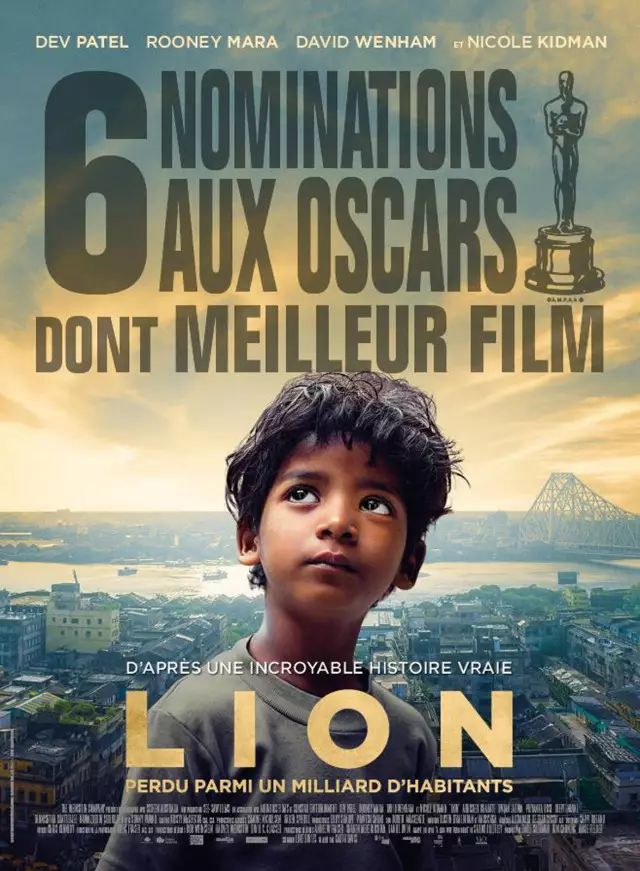
Author . . Cora (Bay Area)
Edit the . . 100 Dissatisfaction (Chengdu)
The annual tear-jerking drama, Australian emotional inspirational film The Lion, is set to land in Chinese mainland cinemas on June 22nd, telling the story of Saro's loss from childhood to adulthood. The Weinstein-directed film, which grossed $12 million in production and distribution, has grossed $52 million at the U.S. box office since its release and has grossed $1 billion worldwide so far. The Lions' broad reputation has largely benefited from its impressive performance in awards season, with six Oscar nominations and four Golden Globe nominations.
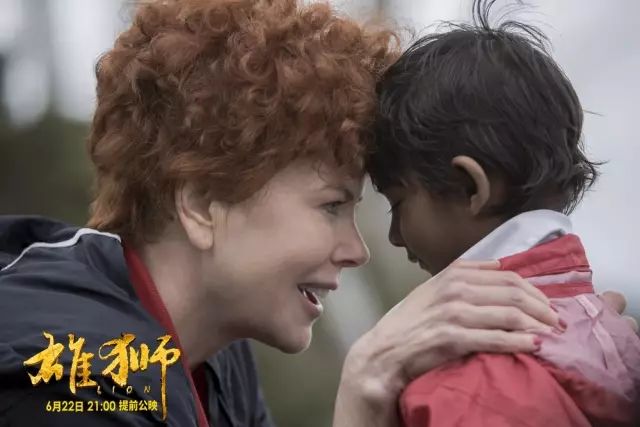
Film promotional photos
The story is based on Saro Brierley's memoir, The Long Way Home, starring new child star Sunny Pawar as a young Saro, who is played by Dave Patel, who rose to prodigy in Slumdog Millionaire. Nicole Kidman stars as Saro's adoptive mother Sue in plain make-up, while Ronnie Mara plays Lucy, an Australian girlfriend who loves Indian food. Of course, it's google maps that can't be ignored. Born in a very poor town in India, Saro was separated from his family at the age of five and survived several ups and downs before being adopted by a kind-hearted Australian couple. Twenty-five years later, he decided to set out to find his long-lost family.
As the maiden work of Australian director Garth Davies, "The Lion" has far more influence than most of its debuts. Davies previously directed commercials, but also co-directed the seven-episode suspense miniseries "The Top of the Lake" with New Zealand director Jane Campion. Variety has a joke about it, and Davis is likely to reduce Saro's story to a tear-jerking 60 seconds, but given his involvement in the production of "Top of the Lake Season 1," it's no surprise that even if the story is extended to four hours. Surprisingly, Davis chose a conservative path, two hours long, one hour to tell the experience of childhood, one hour to tell the adult experience, the whole story is regularly divided.
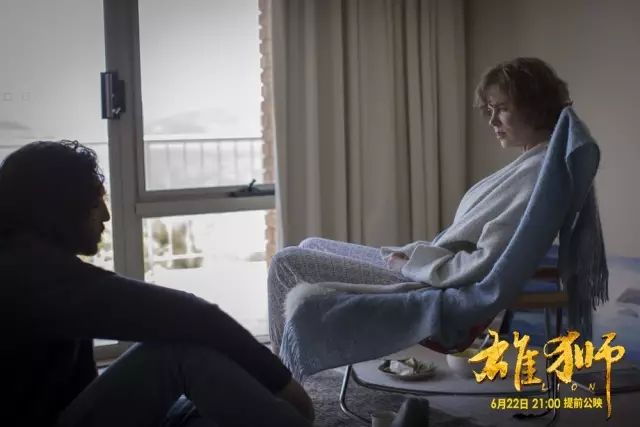
Film promotional photos
In terms of content, the flaws are obvious, one aspect of which is the narrative fragmentation mentioned in the previous paragraph. Even if both men show first-class acting skills, it is difficult to hide the blandness of the plot, if you have to compare, the construction of the characters of little Saro is better. The first half highlights the difficult living conditions of Saro's native family and the dangers encountered after the loss, the small actor's simple and natural performance is impressive, at a young age with his brother running around subsidizing the family, late at night alone wandering on the platform helpless and encountered in Calcutta's dangers and challenges, let the audience pinch a sweat, both heartache and helplessness. Adult Saro's image is relatively flat and boring, and the lengthy sections of the bridge that use Google Maps to find relatives are more like Google's detailed visual user guides, but it's more about the script than the actor's fault.
Adult Saro is cut off from the past, and more than two decades of silence are at a time when the strong desire to burst out of the moment is at fault. Why, at some point more than two decades later, was Saro suddenly so eager to find his native family? Behind Saro's shift in position, how many contradictions and complex inner entanglements are hidden? Casual and trivial conversations are not enough to convince a savvy audience. The film depicts the process of seeking relatives as a stack of scientific and technological achievements, and does not delve into its journey. Although using Google Maps to find relatives is a real event, the way the film is presented makes people feel that Google has invested a lot of money in the film. The tedious mechanical repetition, with the expected ending, lacks the ability to make waves within the audience. If you better express the elements of science and technology, do not fall into the vulgar, the film in the expression of the ability to go to the next level. Embarking on the road of seeking relatives is not only driven by the continuous development of science and technology, its essence lies in human nature, lies in the film has not yet touched the level.
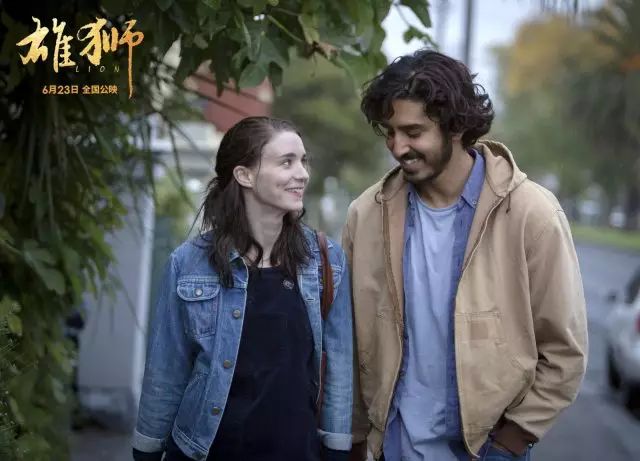
Film promotional photos
The film is not good at revealing the character's psychology and presenting the inner experience. Saro's adoptive parents, a middle-class couple living in Tasmania, Australia, lived comfortably and steadily, with the only drawback. The well-behaved and sensible Saro was very flattering to his adoptive parents, and the Australian couple treated him like a child and decided to adopt a second Indian child. The film's mentality of adoptive parents is not deep enough, because of the character problems caused by the second son's family contradictions, reduced to symbolic, symbolic quarrels, disturbing and insoptive. The second half of the film tries to highlight the psychological changes of the adoptive mother, but appears to be sloppy, we see a mother's will, but that lack of reasonable explanation of the hysteria drowned out the true feelings of the reluctant.
The image of Saro's biological mother is very passive throughout the story. The film does not pay attention to the mother's efforts to find children, although Saro is the focus of the whole film's narrative, but this does not mean that the total neglect of the birth mother perspective is reasonable. At the end of the film, Saro returns to the small village where he was born, and the villagers are overjoyed, their mothers are in tears, and they use sensationalism to win hearts and minds. However, when a long-anticipated ending finally appears, the inspired, unconscious touch in the audience's heart cannot last long. At the same time, the real lens at the end of the film has a sense of time and space indestrusion, the audience is eager to see, is the film is trying to create a bright Saro, or the real, ordinary Saro?
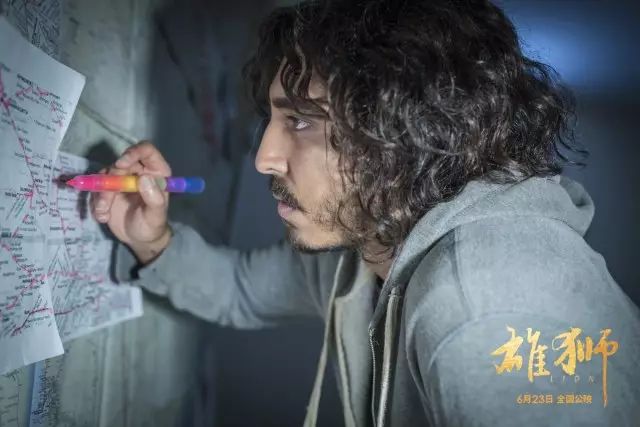
Film promotional photos
The film received a media score of 69 on metacritic's media ratings, which were well received. The Hollywood Reporter gave 90 points, saying the Lions were sober, deep and exciting, and that their meditation on family, roots, identity and home was a two-hour meditation. But there are also reserved media outlets like Variety: the film's lineup is strong, and Davis is a lucky one. There seems to be nothing to boast about in this film except the actors.
The international reputation of "The Lion" is closely related to the theme of the film, that is, the loss of children. At the economic level, most developing countries are on the rise, but in terms of cases of missing children, there is a very different social reality facing developing countries and Western countries. In China, only about one percent of lost children can be recovered, and the human trafficking market makes it harder to find, much like India, the context of the story. In the United States, although disappearances are not uncommon, 99 percent of children end up returning to their parents, because most of them leave home after conflicting with their parents rather than falling into the hands of traffickers. As a result, it is difficult for American audiences to have a personal understanding of the dangers faced by lost children in developing countries. Before meeting well-wishers and being sent to orphanages, Saro meets a bunch of hypocriters who want to make money from Saro, a plot that is relatively alien to American audiences, and it's not hard to be moved by the depth of his misery. Second, many middle-class American couples have also adopted children from developing countries, which resonates with the Australian families in the film.
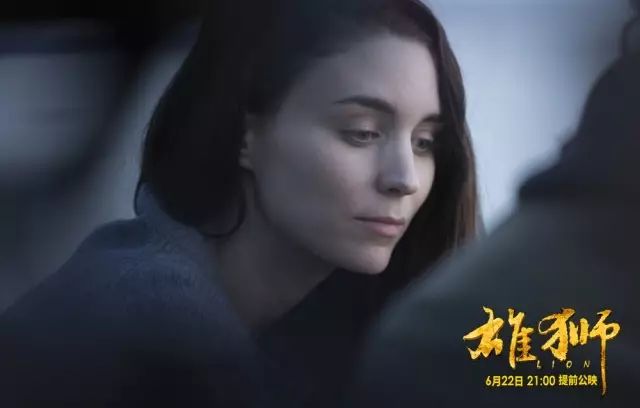
Film promotional photos
Don't know if Saro is more eager to live with poor native families, become a hard-working farmer, or be glad that he has a rewritten life: the privilege of meeting economically rich adoptive parents, in quiet Australia to start their own life? (Another point worth thinking about is why, after the movie, the audience's impression of India and Australia is so diametrical?) We can't easily evaluate Saro's life, only that he chose to live like a lion, life has thrown him all kinds of difficulties, but he has not been afraid.
-Fin-
Ten Commandments|Things in the future|Beauty and the Beast|The history of Romantik's demise | Childhood.
The life of the zucchini|The history of the film|some kind of woman|Raw. |August.|Manchester by the sea
Wang Qingxuan | Orson Welles | Cao Baoping | Buster Keaton | Fritz Lang
Bob dylan. | Fine field guard | Mei Feng | Mr. Sr | Shunji Iwai
Maren Ade | Racer | Fassbender | Scorsese | Van Hoven
Kutar | Perth | Li Weidong | Maggie. | The garden is warm
Godard | Wang Xiaose | Zhang Yongxiang | Abbas. | Zhu Xianzhe | Cai is bright | Wanma is only Dan

Welcome to vote for this week's word-of-mouth list

Send to the author